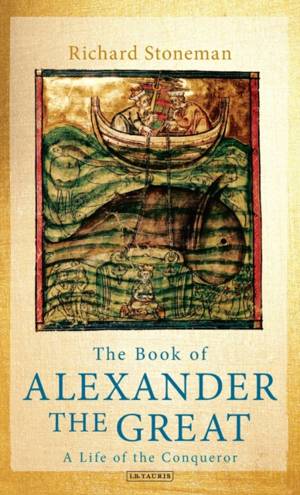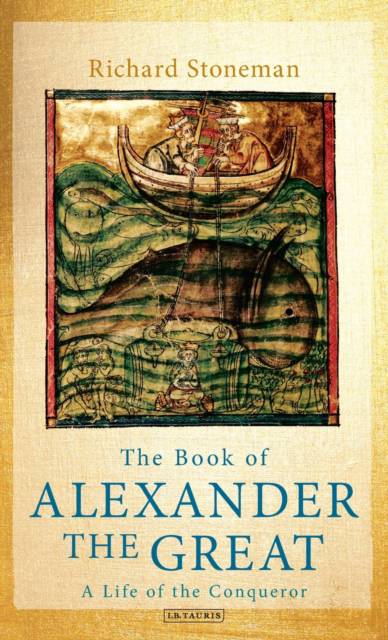
Bedankt voor het vertrouwen het afgelopen jaar! Om jou te bedanken bieden we GRATIS verzending (in België) aan op alles gedurende de hele maand januari.
- Afhalen na 1 uur in een winkel met voorraad
- In januari gratis thuislevering in België
- Ruim aanbod met 7 miljoen producten
Bedankt voor het vertrouwen het afgelopen jaar! Om jou te bedanken bieden we GRATIS verzending (in België) aan op alles gedurende de hele maand januari.
- Afhalen na 1 uur in een winkel met voorraad
- In januari gratis thuislevering in België
- Ruim aanbod met 7 miljoen producten
Zoeken
The Book of Alexander the Great
A Life of the Conqueror
Hardcover | Engels
€ 271,45
+ 542 punten
Omschrijving
The Book of Alexander the Great - or the Phyllada - has for three centuries been the most popular account of Alexander's career in modern Greece. After circulating in manuscript form, it was first published in 1680 in Venice, and has been continuously in print in Greek ever since. The Phyllada broadly follows the structure of the ancient Alexander Romance, but is much better organised and is a work of popular literature reflecting the immense interest that the Conqueror has generated since earliest times. Numerous folktales and local legends kept his story alive, and many works about Alexander circulated in manuscript during the Byzantine period. The Phyllada is the culmination of this tradition. Yet it has never been translated into English: a surprising neglect which Richard Stoneman - an acknowledged expert on Alexander - makes good in this elegant rendering supplemented by a full introduction. As a piece of literature the Phyllada is among the best treatments of the Alexander legend, being full of colour and human interest. Alexander not only encounters the heroes of Troy on his adventures but wears the crown and robe of Solomon.
His descent into the 'Cave of the Gods' (Greek and Egyptian gods in the Romance) becomes a visit to a hell described in Christian terms. The pagan Alexander is thus filtered through a modern lens and becomes an emblem of the good king. The sophisticated narrative structure and world view of the Phyllada account for its lasting influence. This new translation does it full justice.
His descent into the 'Cave of the Gods' (Greek and Egyptian gods in the Romance) becomes a visit to a hell described in Christian terms. The pagan Alexander is thus filtered through a modern lens and becomes an emblem of the good king. The sophisticated narrative structure and world view of the Phyllada account for its lasting influence. This new translation does it full justice.
Specificaties
Betrokkenen
- Vertaler(s):
- Uitgeverij:
Inhoud
- Aantal bladzijden:
- 208
- Taal:
- Engels
Eigenschappen
- Productcode (EAN):
- 9781848852938
- Verschijningsdatum:
- 18/03/2012
- Uitvoering:
- Hardcover
- Formaat:
- Ongenaaid / garenloos gebonden
- Afmetingen:
- 137 mm x 216 mm
- Gewicht:
- 358 g

Alleen bij Standaard Boekhandel
+ 542 punten op je klantenkaart van Standaard Boekhandel
Beoordelingen
We publiceren alleen reviews die voldoen aan de voorwaarden voor reviews. Bekijk onze voorwaarden voor reviews.








